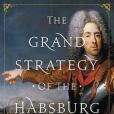《The Grand Strategy of the Habsburg Empire》是Princeton University Press出版的圖書,作者是A. Wess Mitchell
基本介紹
- ISBN:9780691176703
- 作者:A. Wess Mitchell
- 出版社:Princeton University Press
- 出版時間:2018年6月5日
- 頁數:416
- 定價:USD 35.00
- 裝幀:Hardcover
內容簡介
The Habsburg Empire (TM)s grand strategy for outmaneuvering and outlasting stronger rivals in a complicated geopolitical world The Empire of Habsburg Austria faced more enemies than any other European great power. Flanked on four sides by rivals, it possessed few of the advantages that explain successful empires. Its army was not renowned for offensive prowess, its finances wer...(展開全部) The Habsburg Empire (TM)s grand strategy for outmaneuvering and outlasting stronger rivals in a complicated geopolitical world The Empire of Habsburg Austria faced more enemies than any other European great power. Flanked on four sides by rivals, it possessed few of the advantages that explain successful empires. Its army was not renowned for offensive prowess, its finances were often shaky, and its populace was fragmented into more than a dozen ethnicities. Yet somehow Austria endured, outlasting Ottoman sieges, Frederick the Great, and Napoleon. The Grand Strategy of the Habsburg Empire tells the story of how this cash-strapped, polyglot empire survived for centuries in Europe's most dangerous neighborhood without succumbing to the pressures of multisided warfare. Taking readers from the War of the Spanish Succession in the early 1700s to the Austro-Prussian War of 1866, A. Wess Mitchell argues that the Habsburgs succeeded not through offensive military power or great wealth but by developing strategies that manipulated the element of time in geopolitical competition. Unable to fight all their enemies at once, the Habsburgs learned to use the limited tools at their disposal "terrain, technology, and treaty allies "to sequence and stagger their conflicts, drive down the costs of empire, and concentrate scarce resources against the greatest threat of the moment. Rarely holding a grudge after war, they played the "long game" in geopolitics, corralling friend and foe alike into voluntarily managing the empire's lengthy frontiers and extending a benign hegemo

